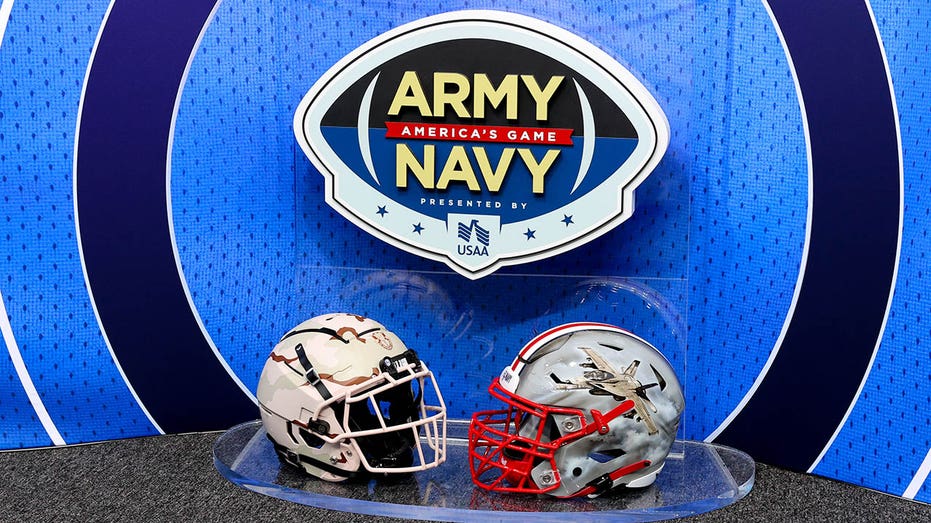Why the Media Narrative on Donald Trump’s Legal Woes Is Wrong
Sometime this month, New York Supreme Court Justice Arthur Engoron will decide how much Donald Trump should pay in penalties in the fraud case brought by New York State Attorney General Letitia James. Engoron has already ruled that Trump did commit fraud, so now it’s just a matter of the money. Engoron has been decidedly unimpressed by Trump’s lawyers’ arguments throughout the proceeding, so it seems reasonable to think Engoron will come close to, match, or maybe even exceed James’s request of $370 million.According to Lisa Rubin of MSNBC, speaking on Morning Joe Friday morning, the very theatricality of Trump and his attorneys’ denials can be a factor in the judge’s determination—that is, if Engoron determines that Trump and his lawyers’ lies are egregiously flamboyant and obvious, that can help dictate the penalty amount. Rubin predicted that the amount would be “in the hundreds of millions” of dollars and that perhaps Engoron would drop the nuclear penalty on Trump and his family—barring them from doing business in New York again.Meanwhile, as Engoron is deliberating, another trial is about to begin. The E. Jean Carroll defamation trial will open next Tuesday, the day after the Iowa caucuses. Last year, a jury found that Trump had lied about not sexually abusing Carroll years ago, and awarded her $5 million. Trump appealed. Last summer, the judge in the case clarified, amid intense media debate and speculation, that Trump did in fact “rape” Carroll. Meanwhile, on the political front, Trump will win Monday’s Iowa caucuses. The following Tuesday, January 23, New Hampshirites will go to the polls. One poll that got a ton of attention showed Nikki Haley within seven points of Trump. She has some momentum, but in the polling averages, Trump still has a double-digit lead. And he’ll be coming off a massive win in Iowa. So let’s say for the moment that Trump wins New Hampshire handily too.The media narrative with respect to the Trump lawsuits will be what it has been, except on steroids: Trump’s legal woes only help him. That’s true with respect to Republican voters. But there are a lot of reasons to think that that piece of conventional wisdom will be dead wrong when it comes to other voters.First of all, New Hampshire may well prove this point. Independents can vote in New Hampshire primaries and have a history of being cranky and unpredictable. Now let’s assume that Trump doesn’t win the Granite State handily—he wins it narrowly or maybe even loses. If that happens, Haley will be succeeding on the strength of those independent voters. And that will constitute a big and important switch that’s worth paying attention to.In 2016, independents made up 42 percent of the electorate in the state’s GOP primary, and Trump cleaned up among them: He got 36 percent of the independent vote, while his closest competitor, John Kasich, got 18 percent.If Trump loses independents in New Hampshire to Haley—even if he still wins overall—that will be a big sign that the Trump show isn’t playing well beyond the MAGA base. We’d have to wait until the results to see what these voters say about why they didn’t vote for Trump. But it’s hardly a stretch to think that Trump’s legal problems have to be part of the story. The media aren’t paying attention to this at all. Case in point: Last week, there was a Washington Post/University of Maryland poll that got a lot of attention. In its write-up, the Post highlighted the fact that three years after January 6, Republicans were if anything more loyal to Trump, not less. The rest of the media largely followed that lead, so the story of that poll became yet another “Trump can get away with anything” story.But other results from the poll that got a lot less attention told a different story. The survey asked people if the Justice Department, in charging Trump for insurrection, was holding him accountable as it would anyone else or was targeting him unfairly. A comfortable majority, 57 percent, said he was being treated fairly. That’s the exact percentage of independents who said the same, compared to 90 percent of Democrats and 20 percent of Republicans.In other words: The Republican base, as is so often the case in these kinds of polls, is a total outlier that distorts the overall results. What does this tell us? I think it’s clear. As the primary “drama” winds down, and as the courtroom drama heats up—and both of these are likely to happen in early March—we’ll see the trials start to take more of a toll on Trump. If the Jack Smith insurrection trial proceeds as originally planned on March 4 (that’s now in abeyance pending resolution of a Trump appeal), Trump’s remaining and mathematically meaningless primary wins are going to get a lot less attention than what’s going on in that Washington courtroom.Don’t buy the narrative that none of this hurts Trump. It will. He’s not being persecuted. He’s a scumbag who did lie about his property values, who did rape Carroll, who did lead an insurrection,

Sometime this month, New York Supreme Court Justice Arthur Engoron will decide how much Donald Trump should pay in penalties in the fraud case brought by New York State Attorney General Letitia James. Engoron has already ruled that Trump did commit fraud, so now it’s just a matter of the money. Engoron has been decidedly unimpressed by Trump’s lawyers’ arguments throughout the proceeding, so it seems reasonable to think Engoron will come close to, match, or maybe even exceed James’s request of $370 million.
According to Lisa Rubin of MSNBC, speaking on Morning Joe Friday morning, the very theatricality of Trump and his attorneys’ denials can be a factor in the judge’s determination—that is, if Engoron determines that Trump and his lawyers’ lies are egregiously flamboyant and obvious, that can help dictate the penalty amount. Rubin predicted that the amount would be “in the hundreds of millions” of dollars and that perhaps Engoron would drop the nuclear penalty on Trump and his family—barring them from doing business in New York again.
Meanwhile, as Engoron is deliberating, another trial is about to begin. The E. Jean Carroll defamation trial will open next Tuesday, the day after the Iowa caucuses. Last year, a jury found that Trump had lied about not sexually abusing Carroll years ago, and awarded her $5 million. Trump appealed. Last summer, the judge in the case clarified, amid intense media debate and speculation, that Trump did in fact “rape” Carroll.
Meanwhile, on the political front, Trump will win Monday’s Iowa caucuses. The following Tuesday, January 23, New Hampshirites will go to the polls. One poll that got a ton of attention showed Nikki Haley within seven points of Trump. She has some momentum, but in the polling averages, Trump still has a double-digit lead. And he’ll be coming off a massive win in Iowa. So let’s say for the moment that Trump wins New Hampshire handily too.
The media narrative with respect to the Trump lawsuits will be what it has been, except on steroids: Trump’s legal woes only help him. That’s true with respect to Republican voters. But there are a lot of reasons to think that that piece of conventional wisdom will be dead wrong when it comes to other voters.
First of all, New Hampshire may well prove this point. Independents can vote in New Hampshire primaries and have a history of being cranky and unpredictable. Now let’s assume that Trump doesn’t win the Granite State handily—he wins it narrowly or maybe even loses. If that happens, Haley will be succeeding on the strength of those independent voters. And that will constitute a big and important switch that’s worth paying attention to.
In 2016, independents made up 42 percent of the electorate in the state’s GOP primary, and Trump cleaned up among them: He got 36 percent of the independent vote, while his closest competitor, John Kasich, got 18 percent.
If Trump loses independents in New Hampshire to Haley—even if he still wins overall—that will be a big sign that the Trump show isn’t playing well beyond the MAGA base. We’d have to wait until the results to see what these voters say about why they didn’t vote for Trump. But it’s hardly a stretch to think that Trump’s legal problems have to be part of the story.
The media aren’t paying attention to this at all. Case in point: Last week, there was a Washington Post/University of Maryland poll that got a lot of attention. In its write-up, the Post highlighted the fact that three years after January 6, Republicans were if anything more loyal to Trump, not less. The rest of the media largely followed that lead, so the story of that poll became yet another “Trump can get away with anything” story.
But other results from the poll that got a lot less attention told a different story. The survey asked people if the Justice Department, in charging Trump for insurrection, was holding him accountable as it would anyone else or was targeting him unfairly. A comfortable majority, 57 percent, said he was being treated fairly. That’s the exact percentage of independents who said the same, compared to 90 percent of Democrats and 20 percent of Republicans.
In other words: The Republican base, as is so often the case in these kinds of polls, is a total outlier that distorts the overall results. What does this tell us? I think it’s clear. As the primary “drama” winds down, and as the courtroom drama heats up—and both of these are likely to happen in early March—we’ll see the trials start to take more of a toll on Trump. If the Jack Smith insurrection trial proceeds as originally planned on March 4 (that’s now in abeyance pending resolution of a Trump appeal), Trump’s remaining and mathematically meaningless primary wins are going to get a lot less attention than what’s going on in that Washington courtroom.
Don’t buy the narrative that none of this hurts Trump. It will. He’s not being persecuted. He’s a scumbag who did lie about his property values, who did rape Carroll, who did lead an insurrection, who did take classified documents (he doesn’t dispute this—he just says he was allowed to do anything he pleased), and God knows what else. Republicans may not care. But I think real Americans do.



